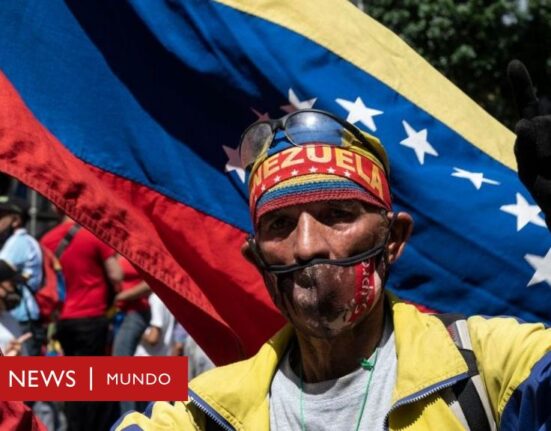A federal appeals court has made a significant decision regarding US President Donald Trump’s tariffs. The United States Court of Appeals for the Federal Circuit in Washington has temporarily reinstated the tariffs, overturning a ruling by a trade court that deemed the tariffs to exceed the powers granted to the president.
The court’s decision came swiftly after an emergency motion from the Trump administration, arguing that halting the tariffs is crucial for national security. While the exact reasoning behind this move was not immediately provided, it has sparked discussions and debates across various sectors.
“You can assume, even if we lose tariff cases, we will find another way,”
stated trade adviser Peter Navarro, emphasizing the administration’s determination to pursue its trade agenda despite legal challenges.
The recent developments have raised questions about the legal basis of Trump’s use of tariffs as a tool in international trade relations. The International Emergency Economic Powers Act (IEEPA), which dates back to 1977, serves as a focal point in this debate. Experts have noted that the IEEPA typically addresses issues related to national emergencies rather than dealing with matters like imposing tariffs.
According to Bruce Fain, a former US associate deputy attorney general under Ronald Reagan,
“The 1977 International Emergency Economic Powers Act doesn’t say anything at all about tariffs.”
This observation underscores concerns about potential overreach and misuse of legislative authority in implementing trade policies.
In light of these developments, legal experts are scrutinizing whether existing laws provide sufficient grounds for imposing broad-based tariffs on multiple countries simultaneously. Greg Schaffer, a professor of international law at Georgetown Law School, highlighted how current statutes may not align with the expansive application of tariffs seen in recent times.
“The power to decide the level of tariffs resides with Congress… Now the president is using it [IEEPA] to rewrite the tariff schedule for the whole world,”
Schaffer explained. This statement reflects broader concerns about maintaining checks and balances within governance structures when it comes to shaping economic policies with far-reaching consequences.
Despite these legal complexities and challenges, stakeholders are closely monitoring how future decisions and actions unfold around Trump’s trade policies. For instance, Peter Harrell from Carnegie Endowment for International Peace pointed out potential implications if importers seek refunds based on legal outcomes related to IEEPA tariffs paid thus far.
Looking ahead, as legal battles continue and regulatory landscapes evolve, there remains uncertainty surrounding the longevity and efficacy of these imposed tariffs. The interplay between judicial interpretations and executive actions will shape not only immediate trade dynamics but also set precedents for future administrations navigating similar policy terrains.
In conclusion, while legal frameworks undergo scrutiny and courts deliberate on constitutional boundaries within trade practices,
the reinstatement of Trump’s tariffs signifies a pivotal moment in assessing presidential authority in shaping economic relations globally. The evolving landscape calls for nuanced considerations balancing executive powers with legislative intent amidst shifting geopolitical realities.









Leave feedback about this